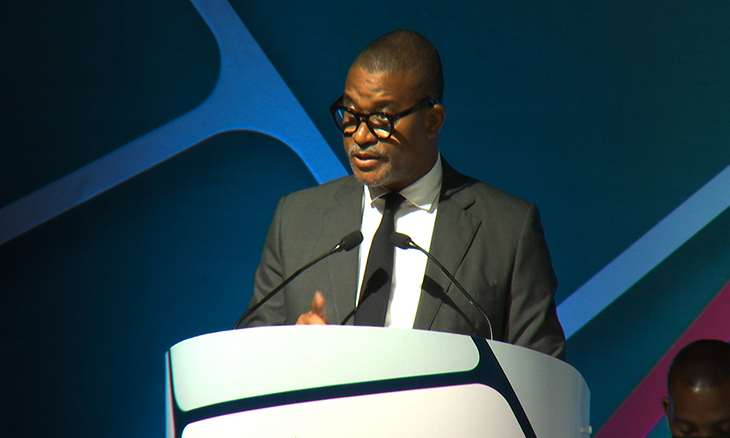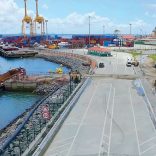Mozambique: Medium Term Debt Management strategy approved
Government intends to slash Mozambique’s debt – AIM report

Photo: O País
Mozambique’s Minister of Economy and Finance, Max Tonela, told reporters on Wednesday that the government is embarking on a programme to slash the country’s indebtedness.
Speaking in Maputo, on the sidelines of the Annual Private Sector Conference, Tonela said the debt is currently 113 per cent of Mozambique’s GDP, and the government hopes to reduce this figure to 60 per cent within three years
“Our perspective is to work and find solutions so that the government can reduce the pressure that the debt is putting on the public finances”, he said.
He added that the government also wants to reach “balance on the public accounts to allow us to have levels of income and expenditure which make it possible for the State to create balances to be injected into the economy through public investment”.
Asked about the sale by the Brazilian mining giant Vale of its coal and logistics assets in Mozambique to the Indian company Jindal, Tonela said there will be capital gains tax to be paid, which the Mozambican Tax Authority (AT) estimates at 32 million US dollars.
As for agreement reached between the government and a technical mission from the International Monetary Fund (IMF), Tonela said the IMF loan envisaged, of 470 million dollars, will be free of interest.
The statement from the IMF mission speaks of reform in the public sector wage bill, supposedly to reduce the pressure on the public finances. Tonela said this will involve consolidating various allowances into the basic wage.
Because of the existence of allowances and indexing factors “the state finds it difficult to forecast the evolution of costs”. So if an increase of five per cent in the basic wages is decreed, the indexing factors turn it into a ten per cent rise, he claimed.
Consolidating all allowances into the basic wage would allow for better forecasting, and better control by the government over the wage bill.
President Filipe Nyusi also welcomed the return of good relations with the IMF. Speaking earlier in the week at an internal Frelimo Party meeting in the southern province of Inhambane, reported in Thusday’s issue of the independent newssheet “Mediafax”, he recalled the difficult moments he had faced following the public exposure, in April 2016, of the true extent of Mozambique’s “hidden debts”.
The term refers to the loans of over two billion US dollars, obtained by three fraudulent, security-linked companies from the banks Credit Suisse and VTB of Russia, on the basis of illegal loan guarantees issued by the government of Nyusi’s predecessor, Armando Guebuza.
When the loans and their guarantees became public knowledge, the IMF accused Mozambique of concealing the true extent of its foreign debt. The IMF suspended its programme with Mozambique and all 14 donors who provided direct support to the Mozambique state budget, suspended further disbursement. To this day, direct budget support has not resumed.
At the Inhambane meeting, Nyusi revealed that even China had refused to grant any further loans, and had urged Mozambique to come to an agreement with the IMF.
When he visited the United States “I was called President of the country of thieves”, he added. Such a perception of Mozambique deprived the country of the prestige it needed, and continued to block its access to finance.
Nyusi said the government had undertaken major efforts to clean up the country’s image, and eventually had managed to win back the trust of partners such as the IMF. He was sure that a new programme with the IMF would strengthen the reforms under way to guarantee sustainable growth and macro-economic stability.
“It’s a great gain for us. Now they trust us”, he said.
Equally optimistic was the governor of the Bank of Mozambique, Rogerio Zandamela, who told a Maputo press conference on Wednesday that the agreement with the IMF would “restore the citizenship of Mozambicans within the international financial system”.
Mozambique had, in the recent past, been seen as “a country near to bankruptcy”, he admitted, but the resumption of IMF support would mean a return to normality.












Leave a Reply
Be the First to Comment!
You must be logged in to post a comment.
You must be logged in to post a comment.